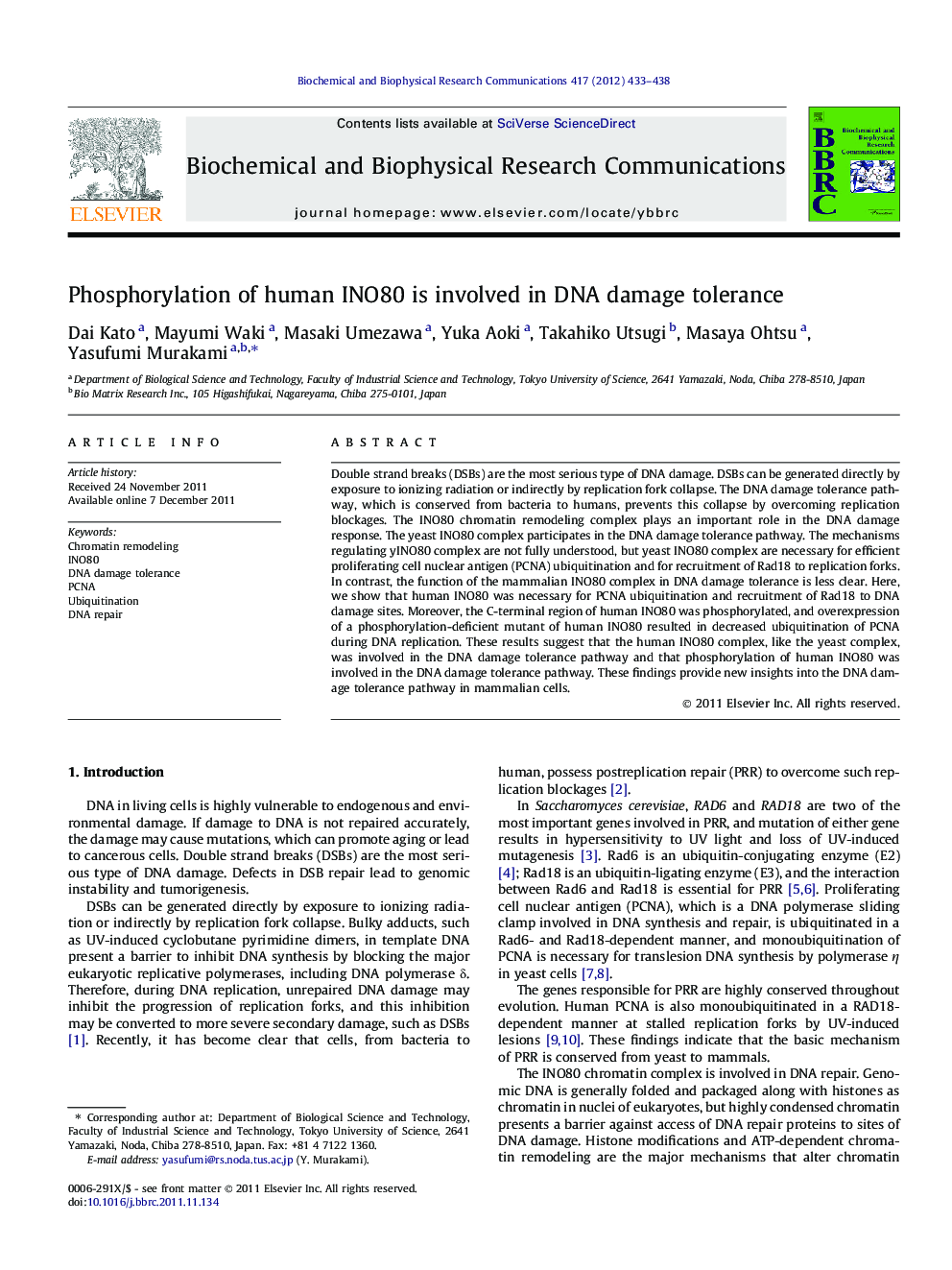| Article ID | Journal | Published Year | Pages | File Type |
|---|---|---|---|---|
| 1930140 | Biochemical and Biophysical Research Communications | 2012 | 6 Pages |
Double strand breaks (DSBs) are the most serious type of DNA damage. DSBs can be generated directly by exposure to ionizing radiation or indirectly by replication fork collapse. The DNA damage tolerance pathway, which is conserved from bacteria to humans, prevents this collapse by overcoming replication blockages. The INO80 chromatin remodeling complex plays an important role in the DNA damage response. The yeast INO80 complex participates in the DNA damage tolerance pathway. The mechanisms regulating yINO80 complex are not fully understood, but yeast INO80 complex are necessary for efficient proliferating cell nuclear antigen (PCNA) ubiquitination and for recruitment of Rad18 to replication forks. In contrast, the function of the mammalian INO80 complex in DNA damage tolerance is less clear. Here, we show that human INO80 was necessary for PCNA ubiquitination and recruitment of Rad18 to DNA damage sites. Moreover, the C-terminal region of human INO80 was phosphorylated, and overexpression of a phosphorylation-deficient mutant of human INO80 resulted in decreased ubiquitination of PCNA during DNA replication. These results suggest that the human INO80 complex, like the yeast complex, was involved in the DNA damage tolerance pathway and that phosphorylation of human INO80 was involved in the DNA damage tolerance pathway. These findings provide new insights into the DNA damage tolerance pathway in mammalian cells.
► Depletion of hINO80 significantly reduced PCNA ubiquitination. ► Depletion of hINO80 significantly reduced nuclear dots intensity of RAD18 after UV irradiation. ► Western blot analyses showed phosphorylated hINO80 C-terminus. ► Overexpression of phosphorylation mutant hINO80 reduced PCNA ubiquitination.
